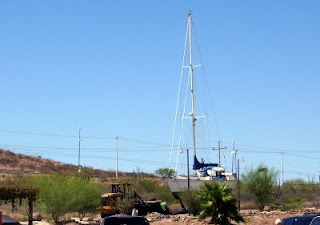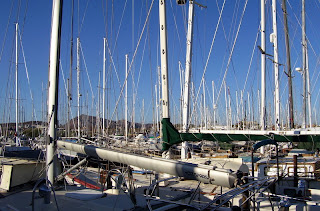
I've never forgotten something my friend Kristin Bergen said one day when I came home and found her, not finishing a paper she'd been sweating over, but polishing the brass doorknob from the bathroom door: This, she said, brandishing the doorknob, is something I can start and finish satisfactorily in half an hour. My paper.....not a chance. Sometimes I just need a little feeling of satisfaction at a job well done.
What she didn't say in quite so many words, but what we all know and often fear is that--as Robert Lowell put so well--writing often feels like an exercise in humiliation. You work and work and work quietly, alone at your desk, and then after many hours you may have very little to show at all. Half an idea, poorly expressed. Some fragments tending towards a poem. An outline. A few paragraphs of a story that could be exciting, but must begin somewhere else. An essay you know your next reader will demand you rewrite completely. A careful piece of research no one will read at all. It's enough to make a body take up polishing doorknobs.
Even when you do manage to make it through all of the revisions, the polishing and perfecting, and you send off your story/poem/essay/manuscript, more often than not it seems, if it comes back--plenty of submissions simply drop into a black hole, a pit of blankness-- it's been judged unsuitable for the press or publication in question. Keep writing, the rejection letter sometimes says, better luck next time. Often things come back with no comment at all.
This is understandable when you look at incoming writing from an editor's point of view--believe me, I've been there! At any small press or magazine or for any contest the inbox volume is usually overwhelming, and often, the quality of submissions thoroughly underwhelming. After you read several hundred, you're at a loss for what to say, even about the works that you like well enough but simply can't accept for one reason or another. The business of editing unpublished manuscripts can be as bad as grading: after a day or two of wading through the boxes you get a sort of depressed glaze; impossibility and humiliation permeate your airways like communicable diseases. But oh the joy when you think you've made a find, when the words have been artfully fitted, when the overall form is striking, pleasing, the polish lustrous and fine.
And. But. Such fit between reader and writer seems, alas, rare. At the moment, I'll admit it, the rejection letters are piling up. Is it because I need to write more, to write better, to submit more work, hone it more sharply? Absolutely. No question; no end in sight to that. But I'm also certainly not knocking at the right doors (where are they? How does one find them?), not working within the compass of a large enough writer's community, not yet sorting out how to work the "business" side of this undertaking as well as I must....particularly in this recessionary, web 2.0 "crowd-powered" climate, where publishers and publications are failing at catastrophic rates and writing and editing and information production are less and less remunerative.
Some days, particularly those foggy, dusk-dark days of early summer in Nova Scotia, it can feel as if everything in the world is ranged against this writing enterprise. --I get it; that's why so many authors drink or suffer what the psychiatric professions call "mood disorders," what William Styron, in his memoir of depression, Darkness Visible, calls "worsening emotional weather." I get it; I'm in it. It's hard sometimes to have faith that this collection of fragments, these unruly impossible words will lead to anything, lead anywhere, shed any light on anything. Sometimes it feels as if the words ARE the demon cloud you're buried beneath. We're all writing. Are we all also reading? I'm less sure.
As Marike says, explaining why she's traded words for paint these days, paint sometimes provides immediate satisfaction. You can point to something and show what you've done. Even if it is full of problems, it still looks like something. When you write, on the other hand, no one glances at what you've put down and then looks again more carefully because they've been drawn in by the colour, the pleasing lines, the slash and puzzle of the form.
She's right. Reading demands more concentration than that, more commitment. When you write you are asking a reader to take something in, to make sense of it, to digest it. And if your work is still in rough form, above all if it is a large or ambitious work, it can be pretty indigestible. So it remains private, a solitary painful shame, a fragment destined to grow--and to cut you along the way until it does.
Me, that's why I cook, and why I invent recipes. It's usually a reasonably punctual undertaking--has to be done in a short time frame, with a limited number of resources. It has to be tasty, colourful, balanced, pleasing, digestible....but even there I crave impossibly complex, surprising flavours and forms....
Something anything piquant please to set against this blankness this sorrow this sunless grey day!






























